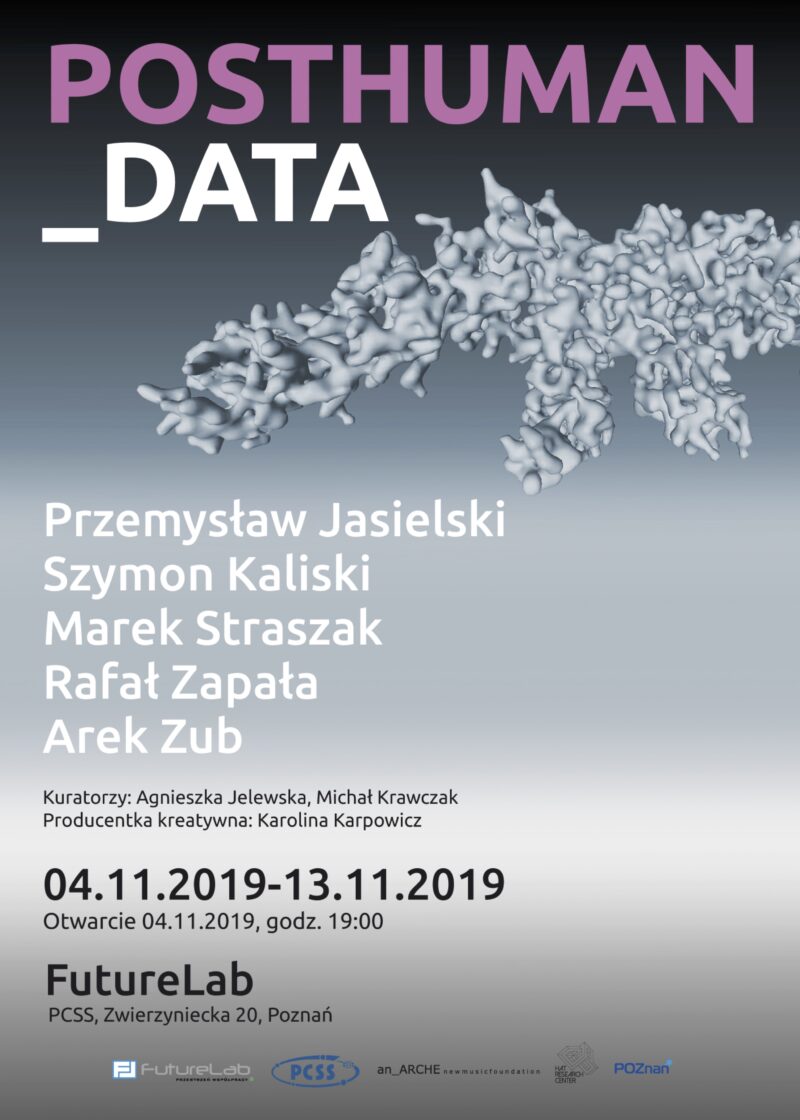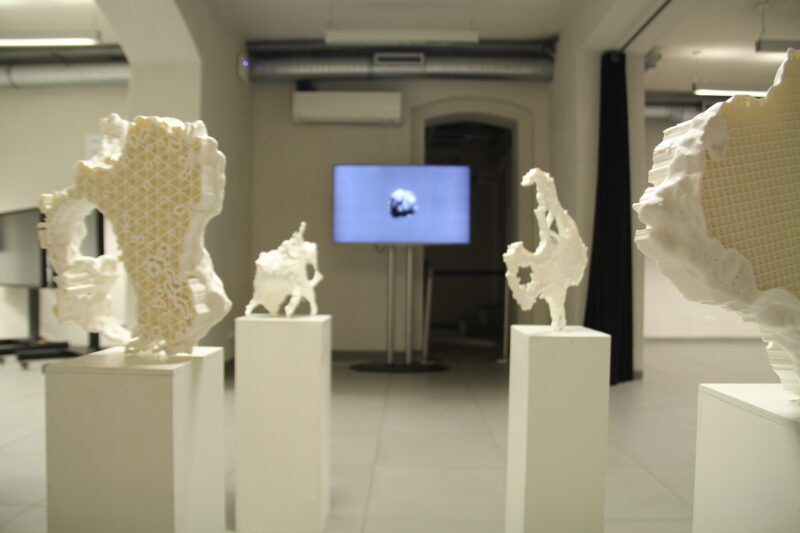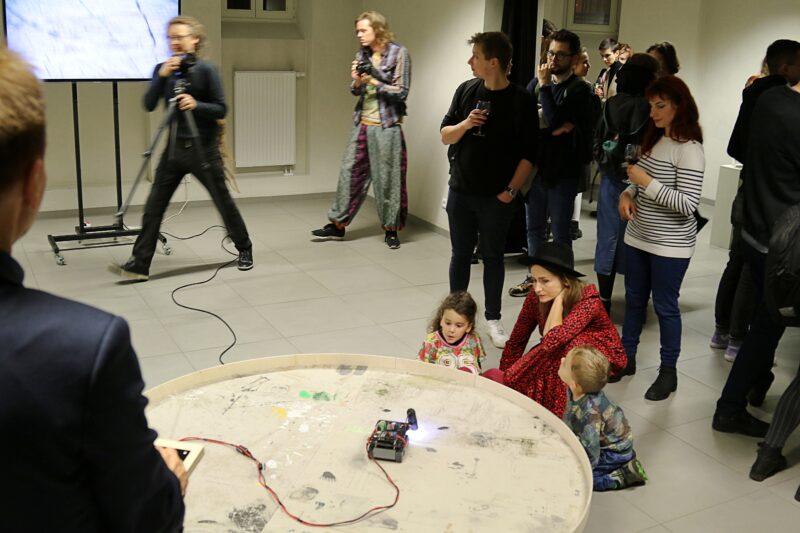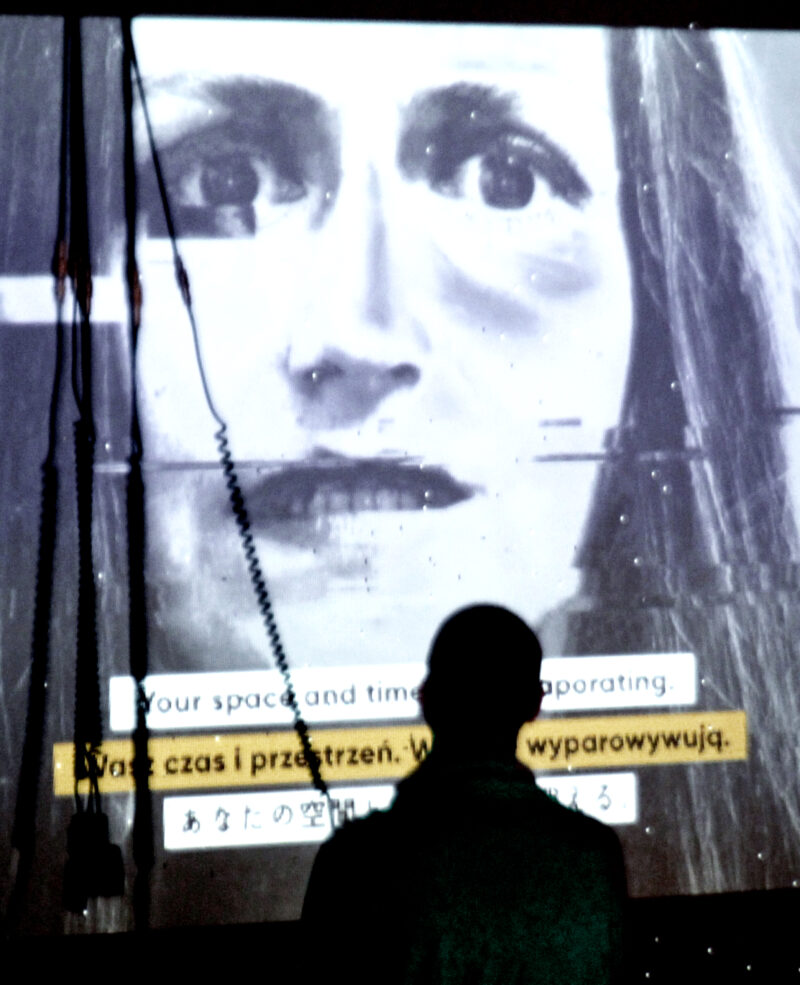Post_Human Data
Posthuman_Data
The starting point for the three projects presented at the exhibition is data. Data as traces of modern culture having on the one hand the status of individual digital fingerprints, on the other – something that we can generally call e-waste. When William Gibson first used the term datascape in the mid-1980s, not many expected that this reality would become our everyday life in a few decades. In the 1990s, Manuel Castells announced new social models linked to the Internet, which were to operate according to the principles of “society of the network”, this model quickly began to evolve – today we are aware that the network can serve not only to expand freedom and emancipation, but also manipulation and system control.
And it is from these last two features of the network, according to Mateo Pasquinelli, that the global “metadata society” in which we operate today has emerged. The metadata describes the post-human condition of modern culture, in which there is no room for individuality – instead, the “dividual” network, of which Gilles Deleuze wrote about the control society. Such a network includes people, machines and organizations that build control models based on acquired metadata.
In this society, as Lev Manovich emphasizes in his latest texts, new competences have emerged outlining the division into those who create data (consciously and unconsciously – leaving unintentional “traces”); those who have organizational capabilities to collect and archive data, and those who have expert skills in analyzing them. The data language nowadays also directly relates to the redefinition of natural and artifical order. The disintegrating system of “biological” nature and “artificial” technosphere has been analyzed, among others, in recent years by Jussi Parikka, the effect of this process is the “medionatures”, complex spheres of nature, culture and media technologies. These spheres should be considered a modern techno-evolutionary system. Through the use of media technologies, we observe advanced biological processes in a scientific way, which in turn redefines the cultural definitions of life and ecological processes, which in turn determines new processes of mediatisation of nature and the need for new research.
Three degrees of post-human
The works presented at the exhibition create a kind of gradual narration about the end of human agency and machine interpretation of culture, disaster acceptance processes, and the adaptive possibilities of medianatures.
Self Enlargement by Przemysław Jasielski explores the cognitive aspects of machine interpretation of the artist’s creative workshop wastes. Traces left behind by past projects, preliminary sketches, calculations recorded by the robot – using a microscope – acquire a character that is alien to the media, geological and biological landscape. Cultural analog waste seen in the e-waste perspective makes it possible to discover the “dividual” (Deleuze) nature of the artist, in which the traditional workshop is coupled with networked thinking about technologies that gain new agency.
Scrolling to Zero by Rafał Zapała is an interactive installation that is a sign of the temporal and meditative nature of the disaster. Here, data is understood as signs of a human vacuum, in which the artist proposes a sentimental return to the community experience – which is the voice meditation exercise. Individuality ceases to exist in vocal alignment, a hybrid, technologically mediated organism is being built, in which the relationship of what is human and non-human is redefined. In fact, referring directly to the philosophy of cosmic pessimism, the work provokes thinking about a community cultural experience based on the acceptance of an ongoing disaster.
Fab Fungus by Szymon Kaliski, Marek Straszak and Arek Zub is a technologically advanced work annexing the theoretical perspective of medianatures and their potential adaptations in the digital-biological environment. In this design, data is part of a new nature, its physical representation is just one of the possible biological interpretations of the code. We are talking here about redefining what is alive and inanimate, artificial and natural. The work raises the question: how much closer to “nature” and biological definitions are algorithms and “non-human” programming languages than anthropocentric strategies for creating cultural narratives and myths?
Curators: Agnieszka Jelewska, Michał Krawczak
Artists: Przemysław Jasielski, Szymon Kaliski, Marek Straszak, Rafał Zapała, Arek Zub



